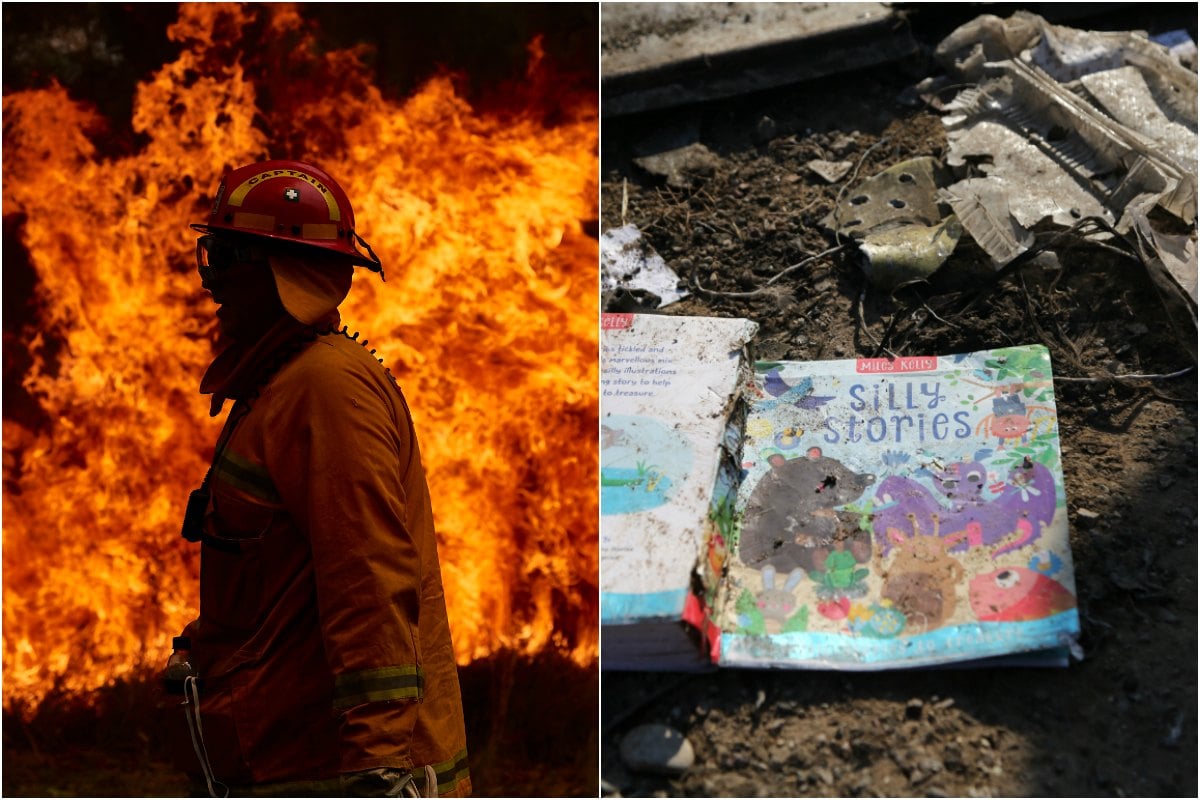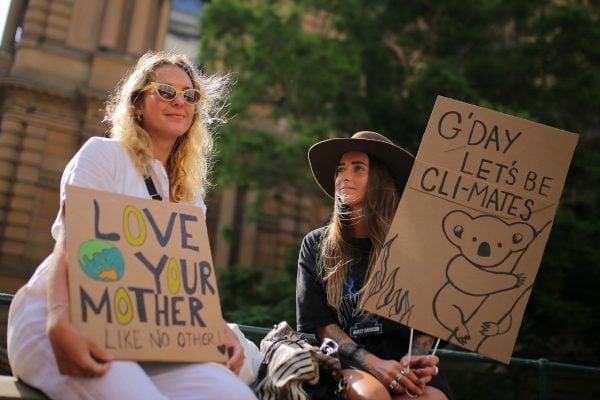
At first, it was the images of blazing fires, charred trees and thick plumes of red smoke descending onto Australian towns, before heartbreaking stories of deaths, species extinction, and burnt homes flooded my newsfeed.
Then came another news alert: On January 3, 2020, the world learnt of the assassination of Iranian Major General, Qassem Soleimani. Done at the request of US President Donald Trump, some asked whether this was enough to spark WWIII.
After all, 106 years ago on June 28, 1914, the assassination of Archduke Franz Ferdinand of Austria by Young Bosnia member, Gavrilo Princip would spark WWI.
I wondered if the death of a man who lived oceans away would plunge the world into unprecedented violence.
Watch: Celeste Barber’s mother-in-law on the devastating bushfire crisis. Post continues below.
I could feel the familiar swell of panic in my gut. It didn’t get in the way of me going to work, or even sharing a laugh with friends, so I mirrored the world around me and went about my day, business as usual, but the lurking anxiety never went away either.

